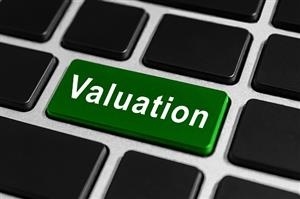
You work hard to make your business successful. But do you know where your business' best market position is? By valuing a woodworking company, it's much easier to see which segment of the market your company will see the best profits. Here's a look at several ways a business appraisal helps determine the best course of action:
Craftsman Quality: Valuing a Woodworking Company for Market Positioning
What does your company do well and what does it do poorly? You know you need a unique selling position, but maybe you are not quite sure what that position actually is. Does your company provide basic MDF furniture that comes ready to assemble or masterpieces of grain and craftsmanship? Does it operate best by providing one of a kind heirlooms or mass produced pieces? It could even be that you're still figuring out where your business needs to market itself to get the best profitability. Business valuations help provide insight into your company and where it is best suited.
A quality business valuation takes into account not only your business' net value but also the state of the industry, your competitors and the strong and weak areas in your business. A business appraiser who has experience in your industry can often see patterns or potential problems you may not, giving you great insight into how your business is functioning. Do you have too much money tied up in equipment that is ineffective, costing you labor and utility overhead? Is there a cash flow issue that is lurking in the background? Does your business have enough equity to invest in a new direction or will it be too high a risk of losing your business if things don't work out as you wish.
A good business appraiser also has experience in the industry and may be able to spot changes in the market that you haven't anticipated. If the economy is in a slump, a mass-produced line of inexpensive furniture may sell well, while a company specializing in high-quality, unique pieces may need to alter their marketing approach compared to when the economy is doing well. Alternately, when the economy is thriving, there may be less demand for inexpensive furniture and more demand for higher-quality items.
What about your competition? What sets you apart from the rest of the crowd? A business appraiser may be able to note areas of your business that boost your business' unique selling point. You could have an exceptional website and digital marketing program that positions you for internet sales. Maybe you have contacts with larger distributors that allows you to get your work into the stores faster or more easily than your competitors. Because a good business valuation provides detail customized to your business and your current needs, you get much more out of the report than just a simple calculation of your business' value.
By valuing a woodworking company, you can get great insight into what your company does well and where it needs improvement. This helps you position your company for success while fixing any issues that may have shown up in the valuation of a company.








